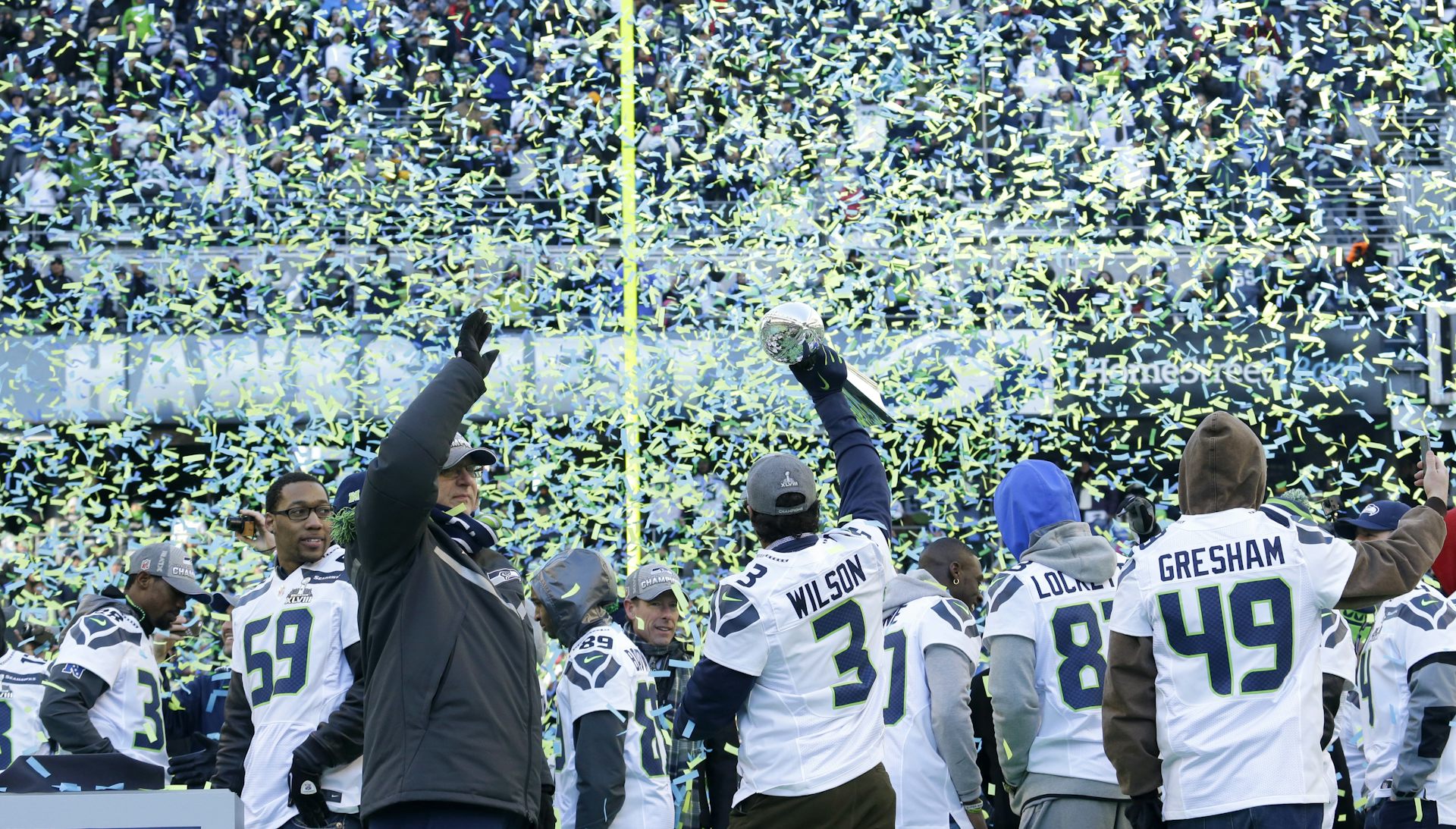The difference between black football fans and white football fans
A recent study might explain why there's been such divergent, emotional responses to the NFL protests.

A significant portion of the NFL’s fan base has reacted negatively to the national anthem protests of the past year. The responses tend to follow a pattern:
The stadium is no place for political protest. The game is a color-blind meritocracy. To protest football is to protest America.
But according to a study we published last year, white football fans and black football fans hold very different views about the relationship between football and national pride. And it might explain why there have been such divergent, emotional responses to the protests.
Black Americans love football, but…
Social scientists who study sports have long argued that sports are a powerful political stage. Popular wisdom, on the other hand, tends to maintain that sports are inherently apolitical, and should remain that way.
It’s true that until recently, visible black protests in American sports were rare. Yes, Muhammad Ali was outspoken about politics and became a symbol of black protest in the 1960s. And there’s the famous instance of Tommie Smith and John Carlos raising their fists in the 1968 Olympic Games. But generally, athletes have not waded into politics, no doubt in part because of the influence of corporate interests and sponsors. (Michael Jordan, when asked why he wouldn’t endorse a black Democratic candidate for Senate in 1990, famously said, “Republicans buy shoes too.”)
So for many white fans, the racial issues addressed by the protests upend what they see as the innocent, colorless patriotism of football.
But for black fans, feelings of alienation toward the imposed patriotism in NFL games have been stewing for a while. And it may be that black athletes finally decided to respond to the attitudes of their black fans.
In our study, we aggregated 75 opinion polls between 1981 and 2014, and compared the relationship between national pride and football fandom among white and black Americans.
We found that since the early 1980s, national pride has been in decline among American men and women of all races. But among black men, this decline has been especially sharp. At the same time, it’s also been accompanied by a marked increase in their interest in the NFL.
We suspect that this inverse relationship isn’t coincidental.
Which Americans do patriotic displays speak to?
For decades, the league and broadcasting networks have conflated football with patriotism. Massive American flags get spread across the field before the game, celebrities sing highly produced renditions of the national anthem, military jets streak across the skies and teams routinely honor veterans and active service members.

Networks air segments about the players’ lives and team histories that emphasize racial integration and national unity. They also promote the narrative that hard work and following the rules lead to success on the field – the crux of the American Dream.
Many football fans might embrace these displays, which reinforce their beliefs and reflect their view of the country as a colorblind meritocracy.
Indeed, our study did show that enthusiasm for football and national pride are interrelated.
But the nature of this relationship depends on your race.
Only among white Americans did we find a positive association between football fandom and national pride: Football fans were much more likely to express high levels of national pride than white Americans who weren’t football fans. Among African-Americans, on the other hand, there was a negative association. This suggests that when black fans watch their favorite team play, it’s a very different type of experience.
And this was happening long before Colin Kaepernick decided to take a knee.
Black identity and American identity
W.E.B Du Bois once observed that for black Americans, a fundamental tension exists between their American identities and their black identities. We now know from other studies that African-Americans tend to see themselves as less “typically American” than other races. Meanwhile, among white Americans there’s a common tendency to link American national identity with whiteness.
It could be that the symbols of American national pride – so visible during football games – give white fans the chance to unite their national pride with their fandom. To them, the fact that African-Americans make up between 65 and 69 percent of all NFL players is simply part of the country’s ethos of “inclusion.”
But for black fans, the overrepresentation of African-American athletes might mean something else. Football broadcasts can create highly visible opportunities to express black prowess, pride and resistance. At the same time, watching wildly successful black players on the football field might sharpen the contrast of racial injustice off the field.
Meanwhile, studies have shown that the more black Americans emphasize their blackness, the less likely they are to have patriotic feelings.
Together, this could create a situation where black fans are prone to reject the popular national narrative that links football to a wider, ethnically blind meritocratic order. To many of them, football isn’t connected to any sort of national identity in a positive way, so it’s easier for black fans to press successful black athletes to protest the status quo and use their platforms to address issues of discrimination and inequality.
In other words, even before black athletes started taking an explicit stand, their presence and success on the field created the conditions to question the dominant ideology of a meritocratic, colorblind society. National debates about inequality, police brutality and incarceration clearly resonate with many players, and they’ve been pushed to respond.
Looking at it this way, these protests were only a matter a time.
The authors do not work for, consult, own shares in or receive funding from any company or organization that would benefit from this article, and have disclosed no relevant affiliations beyond the academic appointment above.
Read These Next
Massive US attacks on Iran unlikely to produce regime change in Tehran
President Trump has appealed to Iranians to topple their government, but a popular uprising is unlikely…
Iran will respond to US-Israeli strikes as existential threats to the regime – because they are
The latest attack on Iran goes far beyond previous operations by Israel and the US in both scale and…
Cuba’s speedboat shootout recalls long history of exile groups engaged in covert ops aimed at regime
From the 1960s onward, dissident Cubans in exile have sought to undermine the government in Havana −…






